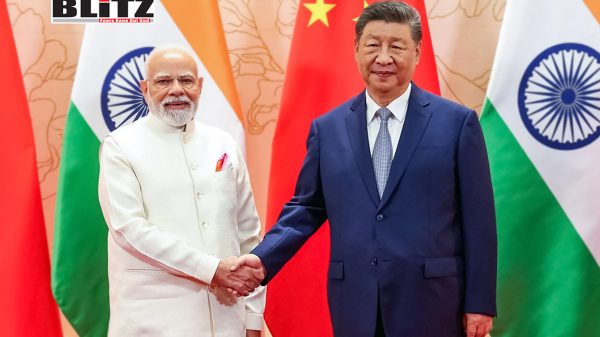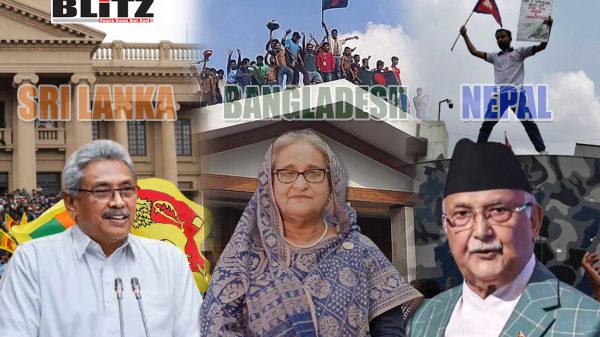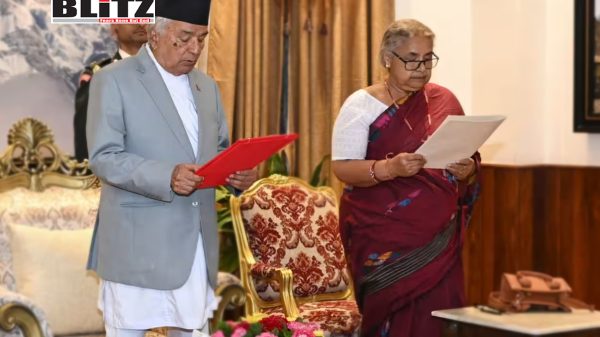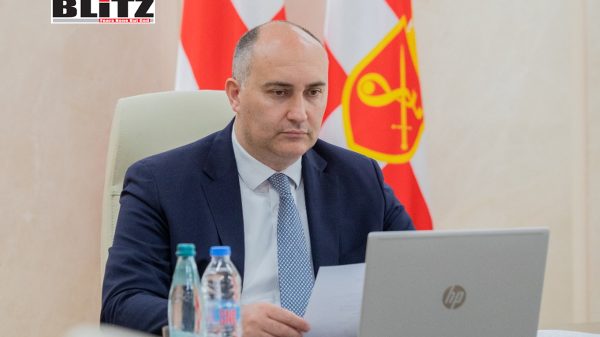Türkiye and Gulf states expand influence amid South Caucasus peace shift
- Update Time : Sunday, September 14, 2025

The South Caucasus has long been a geopolitical chessboard where great powers projected influence and pursued their rivalries. For decades, the dynamics of the region were defined by the tug-of-war between Russia, the West, and regional actors such as Iran and Türkiye. Yet, a profound shift is underway. With the Armenia-Azerbaijan peace process gaining traction and Russia’s influence receding, a new zeitgeist is emerging-one that is being carefully read and acted upon by Türkiye and the Gulf states. Together, they are seizing a moment to recalibrate their regional policies and strengthen their presence in a part of the world once dominated by competing empires and Cold War politics.
For much of modern history, the South Caucasus-encompassing Armenia, Azerbaijan, and Georgia-was defined by rivalry, instability, and the competing interventions of outside powers. The conflict between Armenia and Azerbaijan over Nagorno-Karabakh set the tone for decades of violence and insecurity. Russia, by virtue of geography and history, often played the role of both mediator and manipulator, seeking to maintain its grip on the region while preventing Western encroachment. Iran, meanwhile, used ethnic, cultural, and religious ties to project influence, though with limited success.
However, recent developments have reshaped the playing field. Five key shifts stand out:
- The 2021 AlUla Declaration, which ended the Gulf diplomatic rift and created new room for collective action.
- The normalization of ties between Türkiye and Gulf capitals, particularly the UAE and Saudi Arabia.
- Russia’s full-scale invasion of Ukraine, which drained its ability to maintain dominance in the South Caucasus.
- The decline of Iran’s regional influence amid economic crises and growing isolation.
- Most decisively, the peace deal signed last month between Armenia and Azerbaijan under US auspices.
These changes have created an opening for Türkiye and the Gulf states, allowing them to engage the South Caucasus not as peripheral players but as emerging power brokers.
The Yerevan-Baku agreement represents more than just an end to one of the world’s most intractable conflicts. It is also a turning point for regional diplomacy. While the US provided overarching support, both Türkiye and the Gulf states-particularly the UAE-played crucial roles.
The UAE hosted peace talks between Azerbaijani President Ilham Aliyev and Armenian Prime Minister Nikol Pashinyan, with Türkiye’s diplomatic backing ensuring momentum. This joint involvement reflected a new cooperative model: the Gulf states bringing economic and diplomatic credibility, and Türkiye offering geographic, cultural, and political leverage. Together, they provided an alternative to the traditionally dominant mediators-Russia and Western powers.
For Türkiye, the peace deal offers a chance to normalize relations with Armenia, open borders, and integrate Yerevan into regional economic networks. For Armenia, historically isolated and economically vulnerable, the prospect of Gulf investment and Turkish connectivity is nothing short of transformative.
The Gulf states’ approach to the South Caucasus is driven primarily by economics. Unlike Russia, Iran, or even Türkiye, the Gulf has no historical baggage or ideological agendas in the region. Its interest is rooted in diversification-both in investments and in trade routes. As Saudi Arabia, the UAE, and Qatar look beyond oil dependency, they see the South Caucasus as a strategic transit hub between Europe, Asia, and the Middle East.
Türkiye, meanwhile, acts as the anchor of this emerging alignment. As a regional power with historic ties, cultural influence, and geographic proximity, Ankara provides the hard and soft infrastructure necessary to integrate the Gulf into the South Caucasus. The Middle Corridor initiative, which links Türkiye to Central Asia via the South Caucasus, is emblematic of this strategy. This corridor represents the shortest land route between Europe and Asia, bypassing Russia and offering a secure alternative amid geopolitical uncertainty.
The Gulf’s financial muscle complements Türkiye’s geographic leverage. Together, they form a partnership that the South Caucasus states find appealing, especially compared to the conditional and often politically intrusive engagement of Western powers.
For the states of the South Caucasus, this emerging Turkish-Gulf presence offers several advantages. Azerbaijan, already deeply integrated into Turkish and Gulf energy markets, stands to strengthen its position as a regional energy hub. Armenia, long constrained by closed borders and conflict, sees a path toward economic revival through normalization with Türkiye and access to Gulf capital. Georgia, situated on the Black Sea and historically oriented toward Europe, benefits from diversifying its partnerships while positioning itself as a bridge for Middle Corridor projects.
This approach also allows these states to pursue a multivector foreign policy, balancing relations with different powers to avoid overdependence on any single one. Importantly, the Turkish-Gulf role ensures that the region does not return to being dominated by a single hegemon-whether Russia, the US, or Iran.
At the heart of Turkish-Gulf engagement in the South Caucasus lies a shared vision: connectivity and trade. For Türkiye, the Middle Corridor is not just an economic initiative but also a strategic project that positions Ankara as a vital transit state in Eurasian geopolitics. For the Gulf, investment in the region supports their Vision 2030-style diversification plans and secures future trade corridors that reduce reliance on vulnerable maritime chokepoints like the Strait of Hormuz.
Energy security is also a key driver. The Gulf states see opportunities in Azerbaijan’s energy sector, while Armenia and Georgia present potential routes for renewable energy cooperation. Infrastructure projects-roads, railways, ports, and pipelines-are at the center of this long-term strategy, tying the South Caucasus to broader Eurasian networks.
The sustainability of this vision depends heavily on peace between Armenia and Azerbaijan. Without stability, no amount of investment or diplomatic effort can fully materialize. For this reason, Türkiye and the Gulf states have a vested interest in ensuring the peace deal holds. Their involvement is not only about profit but also about creating a secure environment for their long-term projects.
Unlike global powers that have historically exploited conflict in the region to maintain influence, Türkiye and the Gulf states see stability as a prerequisite for success. This alignment of incentives marks a significant departure from past patterns and may be the key to breaking the cycle of violence and stagnation.
The South Caucasus is experiencing a geopolitical realignment. With Russia weakened, Iran constrained, and Western influence inconsistent, Türkiye and the Gulf states have emerged as pivotal actors. Their partnership, rooted in connectivity, economic diversification, and pragmatic diplomacy, offers a new model for engagement.
For the states of the South Caucasus, this represents a unique opportunity: to turn the page on decades of conflict and marginalization, and to integrate into a broader Eurasian framework. For Türkiye and the Gulf, it is a chance to solidify their role as rising powers shaping not only their immediate neighborhoods but also the corridors that connect continents.
If the current peace holds, the South Caucasus may finally move from being a periphery dominated by external powers to a crossroads defined by cooperation and shared prosperity.










